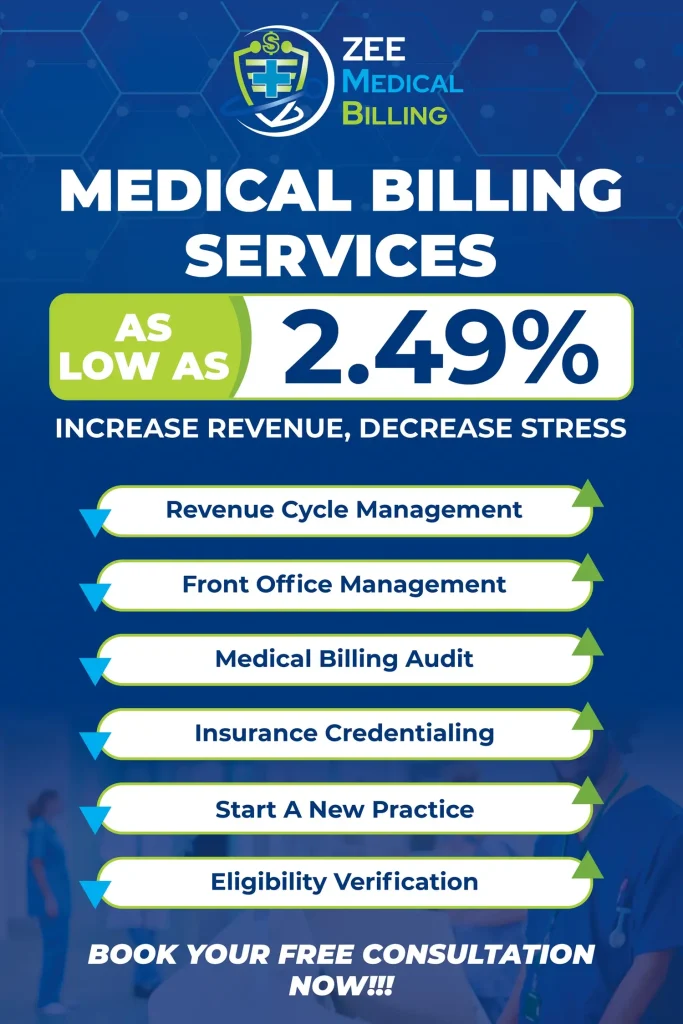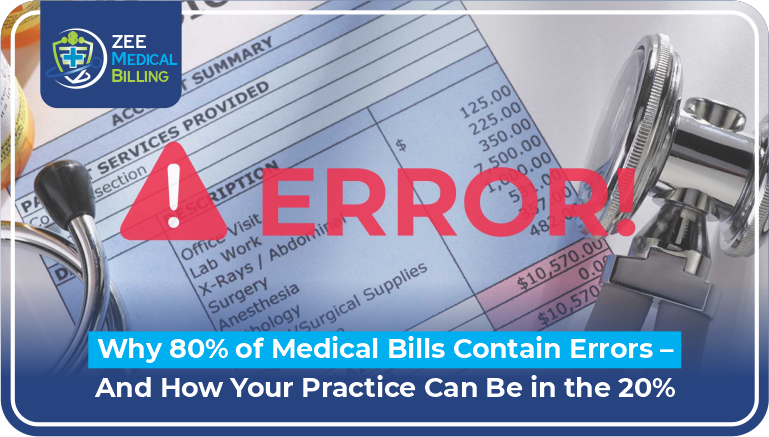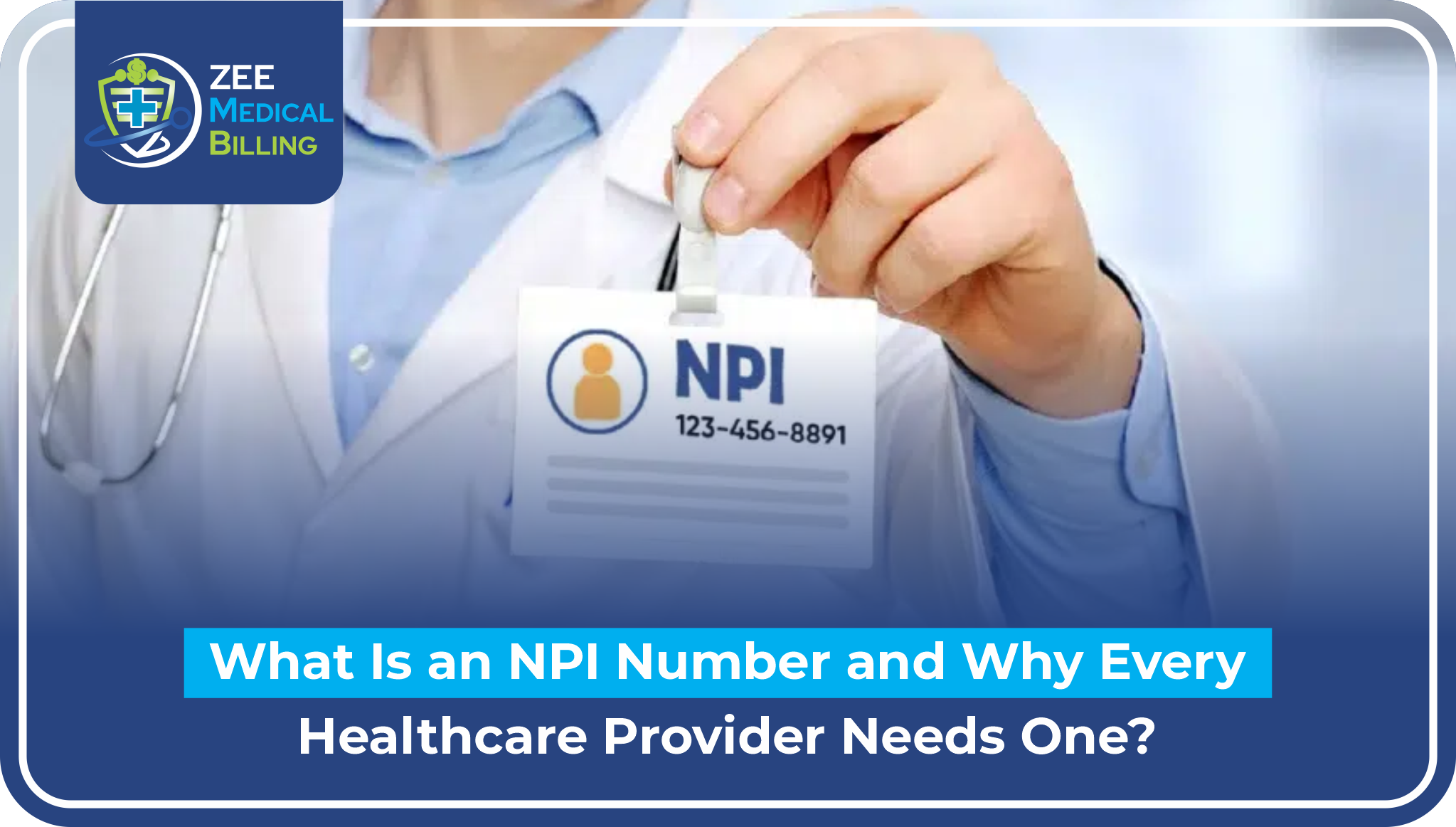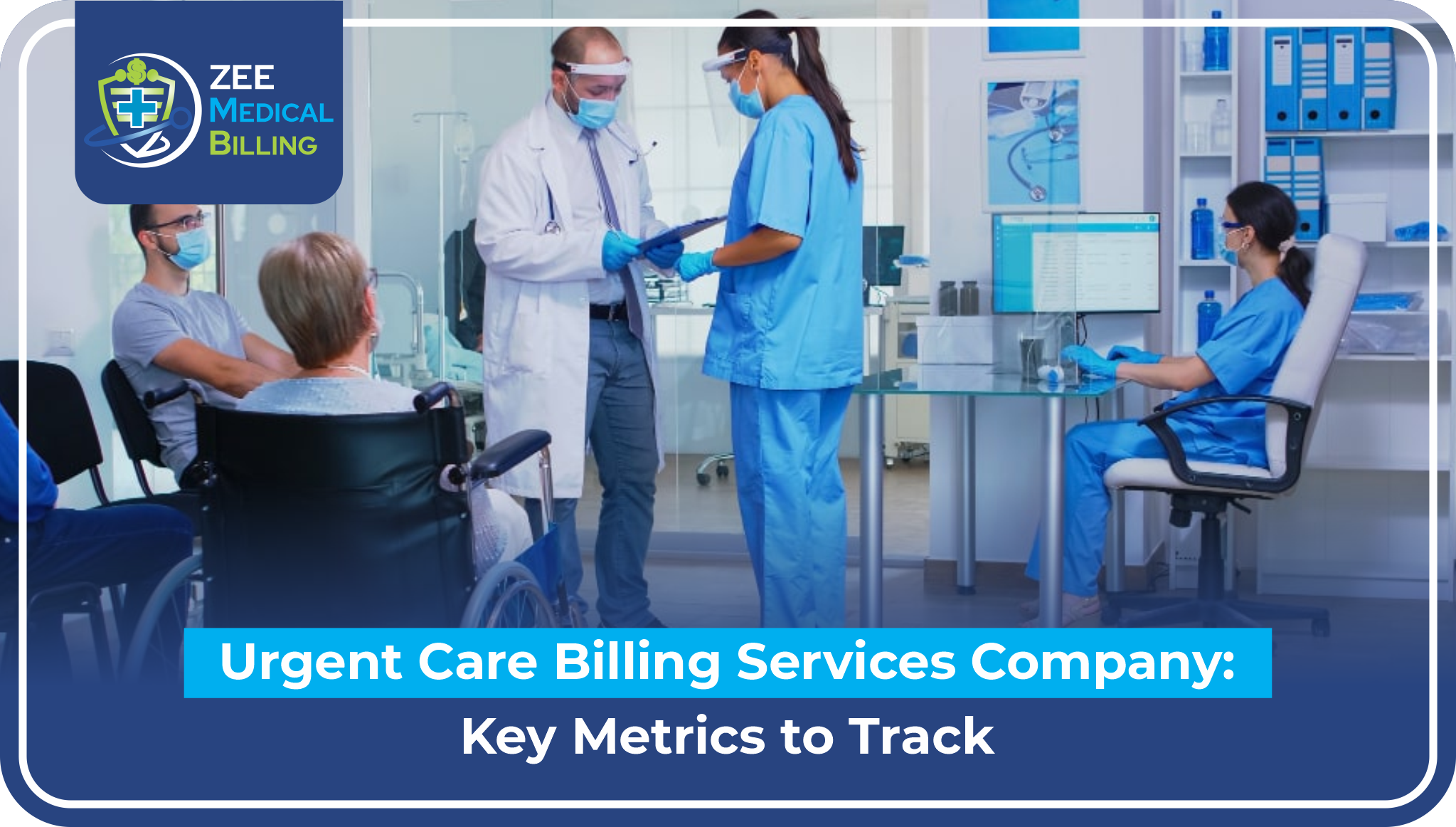Running a successful psychiatry practice means balancing clinical excellence with financial sustainability. While you’re busy diagnosing complex mental health conditions and managing medications that transform lives, revenue often slips through the cracks due to billing complexities. That’s where specialized psychiatry medical billing services become game-changers—turning administrative chaos into streamlined cash flow that supports your practice’s growth and your patients’ wellbeing.
Why Psychiatry Billing Requires Specialized Expertise
The Unique Challenges of Psychiatric Billing
Psychiatry billing isn’t just complicated—it’s in a league of its own. Unlike many medical specialties where procedures are straightforward, psychiatric services blend evaluation, psychotherapy, and medication management in ways that challenge even experienced billers.
Consider a typical patient encounter: You spend 30 minutes managing medications and another 15 minutes providing supportive psychotherapy. How do you code this? Can you bill both an E/M code and a psychotherapy code? What documentation do you need? Which modifiers apply? Get it wrong, and you’re leaving thousands of dollars on the table—or worse, triggering compliance issues.
Insurance companies scrutinize psychiatric claims more intensively than many other specialties. They question medical necessity more frequently, demand more detailed documentation, and apply authorization requirements that can feel arbitrary. Without specialized knowledge, practices face constant denials and payment delays that strangle cash flow.
Differences Between Psychiatry and General Medical Billing
General medical billing focuses primarily on procedures, diagnoses, and straightforward service codes. Psychiatry billing requires understanding:
- Time-based billing rules where minute increments determine code selection
- Complex combination coding for services provided simultaneously
- Psychotherapy codes with multiple variables (with or without E/M services, individual versus family)
- Add-on codes that significantly increase reimbursement when properly applied
- Parity law requirements that insurance companies frequently violate
- Specialized modifiers that affect payment amounts and claim processing
This complexity demands expertise that general medical billers simply don’t possess. ZEE Medical Billing provides specialized psychiatry medical billing services that understand these nuances intimately, ensuring your practice captures every dollar it earns.
Their comprehensive mental health billing services extend beyond basic claim submission to strategic revenue optimization specifically designed for psychiatric practices.
Key Components of Effective Psychiatry Medical Billing Services
Comprehensive Eligibility Verification
Imagine this scenario: A new patient completes an extensive psychiatric evaluation. You spend 90 minutes carefully assessing their condition, reviewing their history, and developing a treatment plan. You submit the claim, and it’s denied because the patient’s insurance requires pre-authorization for psychiatric services—something that should have been identified before the appointment.
This revenue loss is entirely preventable through thorough eligibility verification. Effective verification goes beyond confirming active coverage. It identifies:
- Specific psychiatric benefits and coverage limits
- Pre-authorization requirements for evaluations and ongoing treatment
- Session limits and frequency restrictions
- Copayment, coinsurance, and deductible amounts
- In-network versus out-of-network benefits
- Telehealth coverage for psychiatric services
Professional upfront assistance services systematically verify these details before each appointment, preventing denials and ensuring patients understand their financial responsibility from day one.
Accurate Psychiatric Coding and Documentation
Coding mistakes in psychiatry don’t just cause denials—they cost practices substantial revenue. The difference between correct and incorrect coding can mean thousands of dollars per month in lost reimbursement.
E/M Codes for Medication Management
When psychiatrists provide medication management without psychotherapy, they use standard evaluation and management codes (99202-99215). But here’s where expertise matters: selecting the appropriate level requires understanding medical decision-making complexity, not just time spent.
Many psychiatrists default to mid-level codes when their documentation actually supports higher-level billing. Are you consistently billing 99213 when your complexity warrants 99214? That single level difference represents approximately $40-60 per visit—which compounds to thousands of dollars monthly across your patient panel.
Psychotherapy Add-On Codes
Here’s where psychiatry billing gets truly interesting—and where substantial revenue opportunities hide. When you provide both medication management and psychotherapy in the same session, you can bill both services using add-on psychotherapy codes (90833, 90836, 90838).
These add-on codes are selected based on psychotherapy duration:
- 90833: 16-37 minutes of psychotherapy
- 90836: 38-52 minutes of psychotherapy
- 90838: 53+ minutes of psychotherapy
Many psychiatrists provide this combination service but bill only the E/M code, missing the additional psychotherapy reimbursement entirely. Proper coding can increase revenue by 30-50% per visit without changing your clinical practice—you’re simply getting paid appropriately for services already provided.
Strategic Revenue Cycle Management
Submitting claims is just the beginning. What happens after submission determines whether you actually get paid. Comprehensive revenue cycle management tracks every claim from submission through payment, identifying and resolving issues that prevent collections.
Effective revenue cycle management includes:
- Clean claims submission with complete, accurate information that passes payer edits
- Denial management that quickly identifies denial reasons and implements corrections
- Appeals process for improperly denied claims, including parity violations
- Payment posting that catches underpayments and contractual discrepancies
- Patient billing for balances with clear, professional communication
- Accounts receivable analysis that identifies aging trends and collection opportunities
When managed expertly, your revenue cycle converts 95%+ of expected reimbursement into actual cash. When neglected, that percentage can drop to 70% or lower—meaning nearly one-third of your earned revenue disappears.
Proactive Medical Billing Audits
How do you know if your billing operation is performing optimally? Without regular medical billing audits, you’re flying blind. Audits reveal both revenue opportunities and compliance risks hiding in your daily operations.
Comprehensive audits examine:
- Coding accuracy: Are you selecting appropriate codes based on documentation?
- Documentation adequacy: Does your clinical documentation support codes billed?
- Charge capture: Are all billable services actually being billed?
- Denial patterns: What systematic issues are causing repeated denials?
- Compliance risks: Are there practices that could trigger payer audits or penalties?
- Benchmark comparisons: How does your performance compare to specialty norms?
External audits provide objective assessments that internal reviews miss. They identify specific, actionable improvements that directly increase collections while reducing compliance exposure.
Common Revenue Leaks in Psychiatry Practices
Undercoding Services
Conservative coding feels safe, but it’s costing you money. Many psychiatrists routinely undercode services out of fear of audits or simply from lack of coding confidence. They bill 99213 when documentation supports 99214, or they omit psychotherapy add-ons for sessions that clearly included therapeutic intervention.
This “better safe than sorry” approach actually creates two problems: lost revenue from services legitimately provided, and documentation patterns that make you appear less productive than you actually are. Proper coding matches the documentation to appropriate codes—no more, no less.
Missing Add-On Procedures
Beyond psychotherapy add-ons, other services frequently go unbilled:
- Prolonged service codes (99354-99355) when appointments extend significantly beyond typical time
- Interactive complexity (90785) when communication barriers require additional intervention
- Psychiatric collaborative care (99492-99494) for integrated care models
- Health and behavior assessment codes for patients with medical conditions affecting psychiatric treatment
Each missed code represents lost revenue that compounds across hundreds of patient encounters. Professional psychiatry medical billing services systematically identify these opportunities, ensuring complete capture of billable services.
Authorization Failures
Pre-authorization requirements create administrative burden, but failing to obtain them creates revenue disasters. Many insurance plans require authorization for:
- Initial psychiatric evaluations
- Ongoing outpatient treatment beyond certain visit limits
- Specific high-value services like psychological testing
- Intensive outpatient or partial hospitalization programs
When authorizations aren’t obtained timely, claims are denied outright—not reduced, but completely rejected. Recovering this revenue requires appeals that aren’t always successful, meaning services provided in good faith generate zero payment.
Systematic tracking of authorization requirements through integrated front office management services prevents these entirely avoidable losses.
Documentation Deficiencies
In psychiatry, documentation serves dual purposes: clinical record-keeping and billing justification. Insurance companies demand documentation that clearly establishes:
- Medical necessity for services provided
- Specific symptoms and their severity
- Treatment interventions and patient response
- Progress toward measurable treatment goals
- Clinical reasoning supporting continued care
Vague progress notes like “patient doing better, continue medications” don’t meet these standards. Detailed documentation that quantifies symptoms, describes specific interventions, and measures progress protects your revenue while supporting quality care.
How Technology Enhances Psychiatry Billing
Front Office Management Integration
Modern front office management services integrate scheduling, registration, insurance verification, and billing into seamless workflows. When information flows automatically between systems, errors decrease dramatically.
Integration eliminates:
- Manual data entry errors that cause claim rejections
- Missed authorization requirements that weren’t flagged at scheduling
- Insurance verification delays that create payment surprises
- Communication breakdowns between front desk and billing staff
Integrated systems alert staff when authorizations are expiring, flag when deductibles reset annually, and provide real-time benefit information during patient check-in. This technology doesn’t replace human expertise—it amplifies it.
Real-Time Insurance Verification
Traditional insurance verification involves phone calls, hold times, and information that’s often outdated by the appointment date. Real-time eligibility verification systems query insurance databases instantly, providing current benefit details without the friction.
These systems check eligibility before every appointment, catching coverage changes immediately. They identify copayment amounts, deductible status, and benefit limitations automatically, ensuring accurate financial information for every patient encounter.
Automated verification handles routine checks efficiently while flagging complex situations that require human follow-up, creating optimal balance between efficiency and thoroughness.
Maximizing Reimbursement for Psychiatric Services
Understanding Time-Based Billing
Many psychiatric codes are time-based, meaning the minutes you spend determine which code you can bill. But here’s the critical detail many providers miss: time requirements aren’t always what you think.
For add-on psychotherapy codes (90833, 90836, 90838), time refers only to psychotherapy duration, not total visit time. If you spend 45 minutes total—25 minutes on medication management and 20 minutes on psychotherapy—you bill an E/M code plus 90833 (for the 20 minutes of psychotherapy).
Medication Management Sessions
Standalone medication management visits use standard E/M codes, but level selection requires understanding medical decision-making complexity, not just time spent. The 2021 E/M coding changes made time-based selection optional for established patients, but medical decision-making remains critical.
High-complexity medication management—multiple medications, significant side effects, complex interactions—warrants higher-level codes. Many psychiatrists underutilize 99215 for established patients when their clinical work clearly meets that complexity threshold.
Billing for Combined Services
The real revenue opportunity in psychiatry lies in combined service billing. When you provide both medication management and psychotherapy in a single session, using appropriate add-on codes can increase reimbursement by $50-100 per visit compared to billing only the E/M code.
Here’s the key: you must document both components separately. Your note should clearly describe:
- Medical management activities (medication review, side effect assessment, dosage adjustments)
- Psychotherapy interventions (specific therapeutic techniques used)
- Time spent on each component
This documentation not only supports your billing but also demonstrates the comprehensive care you provide—important for both reimbursement and risk management.
Telehealth Opportunities
Telehealth transformed psychiatry during recent years, and many insurance companies now reimburse telehealth psychiatric services at parity with in-person visits. This creates opportunities to:
- Expand your patient panel beyond geographic limitations
- Reduce no-show rates through convenient access
- Maintain continuity during weather events or patient illness
- Improve access for patients with transportation barriers
Telehealth billing uses the same CPT codes as in-person services, typically with place-of-service code 02 and sometimes modifier 95. Verifying telehealth benefits during eligibility verification ensures you’re capturing this revenue opportunity while managing patient expectations appropriately.
Choosing the Right Psychiatry Medical Billing Partner
Not all billing services understand psychiatry’s unique requirements. When evaluating potential partners, look for:
- Specialty-specific expertise: Do they specialize in psychiatric billing or just offer it as one of many services?
- Coding knowledge: Can they identify and bill add-on psychotherapy codes, interactive complexity, and prolonged services appropriately?
- Technology platform: Does their system integrate with your EHR and provide real-time reporting?
- Denial management: What’s their track record on appeal success rates for psychiatric claims?
- Compliance expertise: Do they understand parity law requirements and telehealth regulations?
- Transparency: Will you receive detailed reporting on key performance metrics?
ZEE Medical Billing brings specialized expertise in psychiatry medical billing services, understanding the unique coding, documentation, and authorization requirements that make psychiatric billing so complex. Their comprehensive approach encompasses upfront assistance services, complete revenue cycle management, and regular medical billing audits that identify revenue opportunities and compliance risks.
Their specialized mental health billing services ensure psychiatric practices receive support specifically tailored to their clinical work and reimbursement challenges.
Conclusion
Psychiatry medical billing services aren’t a luxury—they’re a necessity for practices serious about financial health. The complexity of psychiatric coding, combined with insurance companies’ aggressive scrutiny of mental health claims, creates an environment where expertise directly determines revenue.
Best practices center on comprehensive processes: thorough eligibility verification, accurate coding that captures all billable services, complete documentation supporting medical necessity, and systematic revenue cycle management that converts claims into cash.
Common revenue leaks—undercoding, missed add-on procedures, authorization failures, and documentation deficiencies—cost practices thousands monthly. Professional billing services identify and eliminate these leaks while ensuring compliance with evolving regulations.
Whether you manage billing internally or partner with specialists like ZEE Medical Billing, success requires commitment to billing excellence. With proper front office management services, regular medical billing audits, and strategic revenue optimization, your psychiatric practice can achieve the financial stability that supports your clinical mission.
Your expertise lies in healing minds and restoring mental health. Let billing experts handle the financial complexities so you can focus entirely on patient care.
FAQs
1. Can I bill both medication management and psychotherapy codes for the same appointment?
Yes, when you provide both services in a single session, you can bill an E/M code for medication management plus an add-on psychotherapy code (90833, 90836, or 90838) based on psychotherapy duration. You must document both components separately and meet time thresholds for the psychotherapy portion. This combined billing is entirely appropriate and often significantly increases reimbursement compared to billing only the E/M code.
2. How do I determine which E/M level to bill for medication management visits?
Under current guidelines, you can select E/M levels based on either time or medical decision-making complexity. For medication management, focus on medical decision-making: consider the number and complexity of problems addressed, amount and complexity of data reviewed, and risk of complications or morbidity. Many psychiatrists underutilize higher-level codes when their clinical work clearly supports them. Documentation should clearly reflect your decision-making process.
3. What’s the difference between 90791 and E/M codes for initial evaluations?
Code 90791 is a psychiatric diagnostic evaluation without medical services, typically used by psychologists and therapists. Psychiatrists usually bill E/M codes (99202-99205 for new patients, 99212-99215 for established) because they include medical decision-making about medications and medical factors affecting mental health. Choose based on your credential type and whether you’re providing medical services as part of the evaluation.
4. Do all insurance companies reimburse telehealth psychiatry services?
Most major insurance companies now cover telehealth psychiatry at rates comparable to in-person services, though specific policies vary. Medicare, Medicaid, and most commercial payers expanded telehealth coverage significantly in recent years. Always verify telehealth benefits during eligibility verification, as coverage details—including originating site requirements, technology standards, and consent requirements—differ by payer and state.
5. How can I tell if my practice is leaving money on the table with current billing?
Key indicators include: collection rates below 95%, frequent claim denials, minimal use of add-on codes like 90833-90838, rarely billing higher-level E/M codes (99214-99215), accounts receivable aging beyond 60 days exceeding 20%, or lack of regular billing audits. If any of these apply, a comprehensive billing audit will likely identify substantial revenue opportunities currently being missed.
Follow Us
- Instagram: @zee_medical_billing
- Facebook: ZeeMedicalBilling
- YouTube: Zee Medical Billing Channel
- Twitter/X: @BillingZee
- LinkedIn: Zee Medical Billing Company


























